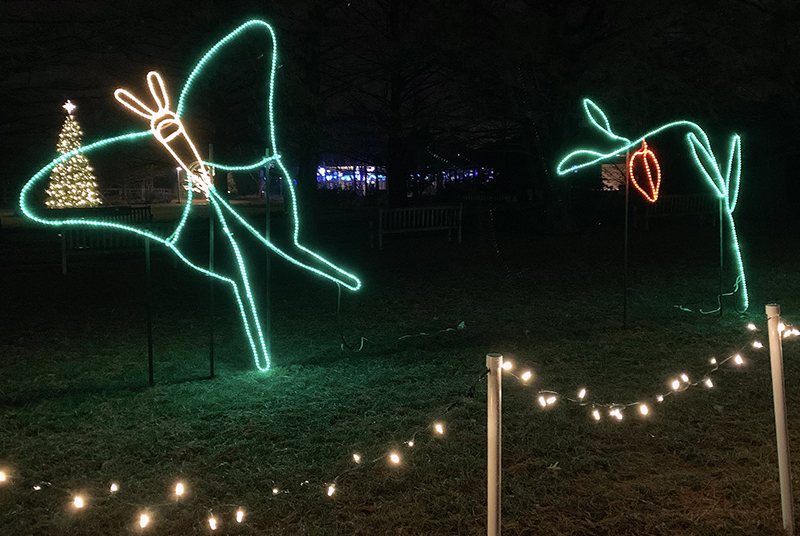Back in place
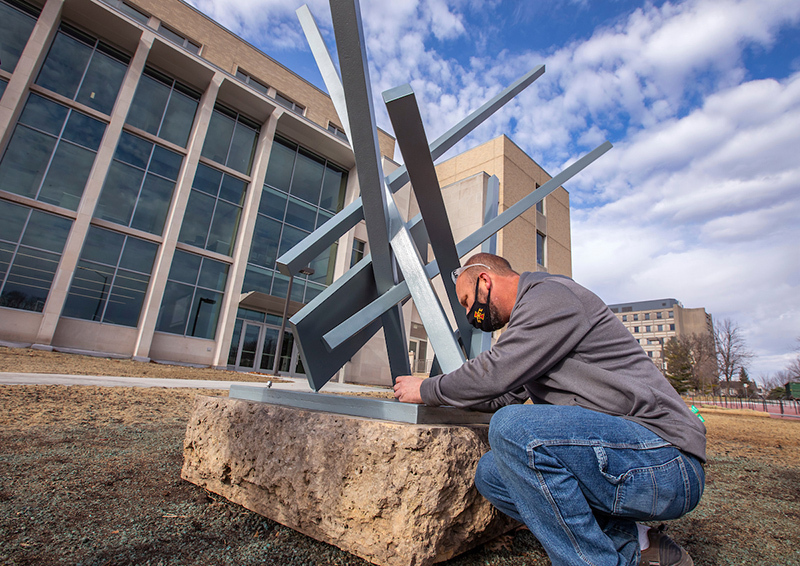
Photo by Christopher Gannon.
Brandon Williams with campus services, facilities planning and management, secures the base of sculptor John M. Henry's Ice Blue east of the Gerdin Business Building late last month. The solid steel painted sculpture, first installed in 2003 when Gerdin opened, was removed in the winter of 2019 to clear ground for the east addition to Gerdin. During the construction window, the public art incubator at the University of Northern Iowa restored the sculpture, repairing some weather-related corrosion and repainting it. Ice Blue is part of university museums' Art on Campus collection.
Storage limits are coming to CyBox
Editor's note: This story was updated Dec. 9.
Iowa State's new three-year contract with Box -- a Cloud data storage service branded internally as CyBox -- ends the era of unlimited storage for the academic community. In fact, Iowa State needs to reduce its current data storage in CyBox by about one-third before July 1, 2021, to avoid paying overage costs.
Cloud-based data storage options -- Microsoft's OneDrive and Google's Drive are others -- have long been generous to education clients with their no-limit data option, according to Jason Shuck, manager of the systems operations team in information technology services (ITS). He said those services have been overwhelmed by the "massive" storage practices of its university clients nationwide.
Learn more
A project website, Storage@ISU, includes project details, timeline and an FAQ.
"Box is not unique in applying storage limits. All of these companies have realized that when they tell education clients 'unlimited storage,' education will use it," Shuck said. "They really can't afford what the academic community wants to use."
The university's new limit is 1.2 petabytes (PB) -- or 1.2 million gigabytes (GB) -- but roughly 30,000 ISU accounts currently use 1.8 PB of data storage. After first setting individual accounts at 25 GB, the remaining university allowance was distributed among colleges and units based on employee FTEs, proportional to Iowa State's overall FTE count. Shuck said those quotas were calculated in November and are being shared with the respective IT support teams this month.
"For the majority of our customers, these new limits will meet their needs," he said. "It's just getting used to new contract terms and the idea of quotas that were not there before."
Moving the university community toward June 30
ITS' plan for reducing the volume of data stored in CyBox establishes caps for individual and college/unit accounts and sets a series of deadlines between Jan. 11 and June 30. The deadlines give more time to owners of larger accounts to delete obsolete or duplicative data --or move it to another storage option. The plan also relies on CyBox account owners making time to clean out their own folders.
Sometime this month, an estimated 2,500 Iowa Staters, including about 500 students, whose accounts exceed 25 GB will receive an email from ITS alerting them they'll need to reduce their storage volume.
On each of three dates, as individual CyBox account quotas take effect, Shuck said users over that cap will have read-only access to their files. They won't lose any files or data, but won't be able to make changes without first deleting files to meet their quota.
Phasing in accounts to the new storage limits will follow these deadlines:
- Jan. 11, 2021: The 25 GB quota will be turned on for all individual accounts under that limit. Some good news, Shuck said, is that 93% of all individual accounts at Iowa State fit this category. In fact, the average is about 10.5 GB.
- Feb. 1: The 25 GB quota will be applied to all individual accounts between 25 and 100 GB. Customers with total storage above 25 GB will not be able to save any new data -- either new files or edits to old files -- until they reduce their storage below 25 GB.
- March 1: The 25 GB quota will be applied to all remaining individual accounts (users with more than 100 GB of stored data). While this is a relatively small number of accounts, Shuck said there are individuals whose accounts exceed a terabyte. ITS will help owners of unusually large accounts navigate the process.
- March 1: All colleges/units without a CyBox account will be assigned one and their quotas (based on the employee FTE calculation) will be set.
- June 30: Final deadline to meet all individual and college/unit data storage quotas to avoid overage costs to Iowa State, a rate of $130 per terabyte annually. That expense will be allocated to an individual's parent unit or the college/unit.​​
How to reduce your CyBox storage
ITS communications staff developed an article, Tips for Reducing Your CyBox Digital Storage Usage, in the IT portal knowledge library (storage category). It includes instructions for finding how much storage you're using, finding large files and obsolete files, deleting multiple versions of a file, deleting multiple files at one time and other tips.
How large a byte?
- Megabyte (MB) = 1 million bytes
- Gigabyte (GB) = 1,000 MB
- Terabyte (TB) = 1,000 GB or 1 million MB
- Petabyte (PB) = 1,000 TB or 1 million GB
"If it's something you don't need, get rid of it," Shuck advised. "If it's critical to your job, don't get rid of it, no matter its size."
Another article, Migrate from CyBox to Microsoft OneDrive or Google Drive, assists account owners with the task of manually moving files to another storage service.
Faculty and staff who are finding it difficult to reach an individual or unit storage limit by their deadline should email storage@iastate.edu or contact their local IT support team for assistance.
Consider another storage option, maybe
In addition to Box, the university has contracts with Microsoft, whose Office package includes OneDrive, and Google, which offers Drive. All faculty, staff and students have access to the two services. OneDrive provides 25 terabytes of storage per individual account and Google still offers unlimited storage for education clients. Shuck said his team encourages use of these storage options for individual data, but not department-level or higher data. Units that are able to stay at or under their new limit are encouraged to keep their data in CyBox.
'We've learned that, for individual data, it really doesn't matter where people store it." he said. "We've also learned that some data stored in individual accounts actually belongs in a department account."
When an employee leaves the university, their Net ID is retired and all the data attached to that Net ID is erased with it. Thus, documents shared by many across a unit should be in a department/unit account, he said. Department data isn't tied to an individual employee and remains accessible to the Iowa State community.
Shuck also cautioned departments and colleges to avoid a patchwork of storage sites, noting it's confusing and difficult for users to find data when it's distributed across several locations.
Sponsored accounts are limited now
To prevent further increase in the university's Box usage, effective Dec. 4, IT Services will block new role (business) and affiliate (non-employee) accounts. A form in ServiceNow allows them to request access to CyBox, but they will receive a 0 GB quota and must store data in a college/unit account. The default for secondary (student employee) accounts will be access to CyBox, but student employees also should save all data to the college/unit account they work for.
New Box contract
Last winter, Box announced considerably lower storage limits at a price more than triple for all of its university clients. But following considerable, collective pushback, Shuck said the company negotiated more generous terms for academic contracts that started last July 1. Those terms will be enforced beginning this summer.
More flexibility, more features for growing digital repository
When Iowa State first launched a digital repository in 2012, giving university scholars an easy way to freely share their work, the platform it was built on was a ready-to-go software package that didn't offer much customization. For an institution just beginning to construct an open online collection, the simplicity was ideal.
FAQ video
Have questions about the migration to DSpace? Check out this FAQ video from Hope Craft, digital repository specialist.
Since then, more than 93,000 papers have been uploaded to the repository, which has hosted 29.5 million downloads -- more than 7.5 million in the last year. As the repository expands, faculty increasingly expect more from it than the current platform can deliver.
"We've kind of outgrown it," Hope Craft, University Library digital repository specialist, said of the existing repository software. "I get sick of telling faculty 'I can't help with that.'"
That will change next month when the repository migrates to a new platform, DSpace. The open-source program, set to go live Jan. 19, will add capabilities that aren't possible with the existing system and offer opportunity to adjust in the future.
"It feels like we're controlling our own destiny now," Craft said.
More functional, better search
Library staff identified improvements faculty wanted during the two-year process of moving to a new platform. New features will include improved integration with modern identification standards for both researchers (ORICD iD) and research material (digital object identifiers), streamlined forms so authors can upload their own work, automatic submission from journals with open-access agreements with Iowa State and an option to link to DataShare, ISU's open research data repository.
Better searchability will be one of the most noticeable public-facing differences. The search engine within DSpace includes full-text search and other advanced features, which will make finding an item significantly easier. Craft said she has difficulty locating articles in the existing repository, even when searching by an author's name for a paper she knows is there.
"Now, it's easier a lot of times for people to go to Google to find something," she said. "DSpace is going to be much faster and much more accurate."
What's staying the same
In addition to providing ongoing adaptability, using an open-source platform for the repository conforms with the University Library's openness principles and will save money in the long run. DSpace is free software, but the library has contracted with a software development firm to customize the platform and migrate the current collection.
Developers are ensuring links to the current repository stay live and that author profiles and download statistics transfer smoothly to the new system. Though a rebranding may be considered at some point, the name of the repository won't change for now, Craft said. Faculty who use the repository don't have to do anything as the platform changes.
"You won't need to recreate anything. We're doing all the heavy lifting," she said.
The copyright management process is staying the same, too. A three-person team of library staff is available to help determine the copyright status of published faculty research and, if needed, negotiate with publishers to secure a version of their work for the ISU repository.
Before the new platform goes live, the library will release how-to videos explaining the process for setting up an author profile and for submitting an article.
"We're trying to make this as simple as possible for everyone," Craft said.
Repository's reasons
Nearly 900 ISU faculty have submitted a paper to the digital repository since 2012, a higher rate of participation than most universities, Craft said. The benefits are clear for faculty, especially those working on tenure or a rank promotion. Using the digital repository increases the availability and impact of faculty research, making it more likely to be cited.
At an institutional level, a digital repository is a powerful embodiment of the land-grant mission to share the university's knowledge with the world.
"This is the best avenue for doing that," Craft said.
Six researchers named AAAS fellows
The American Association for the Advancement of Science is honoring six Iowa State researchers for their work in engineering, math and biological sciences. The six scientists were named to this year's class of 489 AAAS Fellows "because of their scientifically or socially distinguished efforts to advance science or its applications," the association announced Nov. 24.
The six Iowa State researchers and their award citations are:
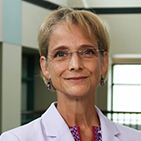
Kristen Constant, vice president and chief information officer, a Morrill Professor, the Wilkinson Professor of Interdisciplinary Engineering and former chair of materials science and engineering, "For distinguished contributions to the design and fabrication of photonic structures and her influential role in materials engineering education and broadening participation in STEM disciplines."
Constant has transitioned from photonics research to administrative duties, but is still working to broaden participation in science, technology, engineering and math programs. Her recent work focuses on leveraging national accreditation practices to promote recruitment, retention and advancement of those underrepresented in STEM fields.
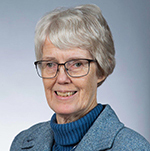
Leslie Hogben, an associate dean in the College of Liberal Arts and Sciences and professor of mathematics, "For distinguished contributions to the field of linear algebra and mentoring the next generation of mathematicians."
Hogben's current research involves connections between linear algebra, graph theory and their applications. Linear algebra studies matrices, or arrays of numbers, while graphs model objects, relationships between them and networks. Matrices and graphs can give information about each other and the interplay between them provides information about a network being modeled.
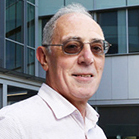
Basil Nikolau, the Frances M. Craig Professor of biochemistry, biophysics and molecular biology, director of the Center for Metabolic Biology, director of the W.M. Keck Metabolomics Research Laboratory and former deputy director of the Engineering Research Center for Biorenewable Chemicals, "For distinguished contributions to the field of biochemistry, particularly for the characterization of novel metabolic processes."
Nikolau's research focusses on integrating biochemical and genetic strategies to understand the metabolic processes that enable biological systems to generate diverse chemistries. He's currently on leave from Iowa State, serving as director of the division of molecular and cellular biology in the Biological Sciences Directorate of the National Science Foundation (NSF).

Hridesh Rajan, the Kingland Professor of Data Analytics or Cognitive Machine Learning and chair of computer science, "For distinguished contributions to data driven science, particularly to modularity and modular reasoning in computer software and the development of the Boa language and infrastructure."
Rajan's recent research and educational activities are aimed at decreasing entry barriers to data-driven sciences. He leads the NSF-supported Dependable Data Driven Discovery Institute at Iowa State and is the founding general co-chair of the Midwest Big Data Summer School.
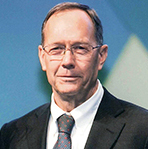
James Roth, a Clarence Hartley Covault Distinguished Professor in Veterinary Medicine, the ISU President's Chair in Veterinary Microbiology and Preventive Medicine, director of the Center for Food Security and Public Health and executive director of the Institute for International Cooperation in Animal Biologics, "For distinguished contributions to the field of immunology, particularly for control of infectious diseases in food producing animals."
Roth studies emerging and zoonotic diseases of animals, including vaccine development and delivery, surveillance and biosecurity. He has pioneered educational courses on emerging and zoonotic animal diseases and disease control. He also has influenced government policy toward reducing the need to destroy infected herds or flocks while enhancing continuity of food production, processing and distribution.
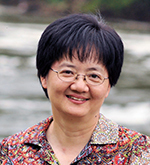
Kan Wang, the Global Professor in Biotechnology in the department of agronomy and co-director of the Crop Bioengineering Center, "For advances in genetic engineering in plants using Agrobacterium tumefaciens."
Wang's research explores novel technologies for crop genetic transformation and genome editing. She also investigates genes involved in crop species evolution and studies agrobacterium biology, especially the genes and other genetic elements involved in agrobacterium-mediated DNA delivery into plant cells.
This year's class of AAAS fellows was announced in the Nov. 27 issue of the journal Science. A virtual induction ceremony for the new fellows will be Feb. 13, 2021.
AAAS is the world's largest general scientific society and publisher of the journal Science. The nonprofit is open to all, has a mission to "advance science and serve society" and includes more than 250 affiliated societies and academies of science.
Virtual offerings are important for extension now, into future
When the pandemic forced ISU Extension and Outreach to close offices and cancel most in-person meetings, it impacted its connection with Iowans across the state.
Instead of pulling back, extension found new ways to reach its audience and draw in people along the way.
"We started using social media, podcasts and radio to reach people with educational information," vice president for ISU Extension and Outreach John Lawrence said. "It is more than just Zoom or Webex, it is a portfolio of ways we reach people in addition to in person."
Extension had the advantage of previous relationships with its audience, and its affiliation with Iowa State guided people to virtual offerings.
"They will follow us on social media and they will tune in to watch a webinar even though they may not like Zoom because it is the same entomologist they would have driven 60 miles to hear because they trust them," Lawrence said.
For all the virtual education extension offers, it will not totally replace the in-person experience, Lawrence said.
"It's about the relationships," he said. "Our staff likes to help people, and most are extroverts. Those personal connections and trust can be generational."
Successful offerings
Extension provided numerous opportunities for people to interact virtually in recent months.
The crop scouting school was held virtually for the first time and drew 560 participants, up from about 30 for in-person events. People from 17 states and four countries took part.
The beef team conducted an 11-part series on controlling cow costs on Facebook that had more than 1,500 views. Iowa Learning Farms held 11 virtual field days with 2,300 participants, and the research farm field days drew 1,058 participants from nine states. Extension also has made its experts available to a larger audience with Facebook Live Q&A sessions.
"In a virtual world, there are no boundaries," Lawrence said. "Going forward we will look where Iowa State may have particular strengths and has a national audience. Conversely, are there things we are not particularly strong in where we may partner with other state extensions to deliver programming?"
Quality matters
Lawrence said extension benefited from starting early with virtual offerings, and quality will be key to keeping the audience.
"Early on we had a lot of grace, but as we move on it needs to have better quality and branding," he said. "There was a lot of learning from each other, not just in Iowa, but seeing what other states were trying to do."
Extension unveiled CropsTV on Dec. 1 to provide crop production information directly to farmers and agribusinesses at the viewers' convenience. Forty-five topics will be delivered over the course of 10 weeks and can be viewed live or on-demand. Charging viewers a one-time payment of $45 helps offset the loss of the crop management conference and the crop advantage series, which draw thousands of participants each year.
"Revenue generation is an important part of our budget," Lawrence said. "It provides continuing education credits that our audience needs, and provides us a test run of something with a professional look."
Lawrence also sees the possibility of something similar to CropsTV for community development, human sciences and 4-H. However, some offerings like ServSafe are contracted with national associations and must be conducted in person.
CropsTV will give extension an idea of how much of an appetite there is for online content and the balance that will need to be struck when in-person events resume, Lawrence said.
Virtual education task force
To examine the move to virtual education, Lawrence formed the Virtual Education Task Force. The 17 members assessed extension's response and programming while dealing with COVID-19. They came back with several areas of success and areas where more work is needed.
"We wanted to see what was and wasn't working well and shared those ideas for the short-term," he said. "We all realize that when we go back to normal, it won't be the old normal."
The shift to more online content presented simple needs such as having the proper lights and cameras, but Lawrence isn't looking for everyone in extension to be tech-savvy. Identifying key people in each unit who can assist and help troubleshoot is important.
"Some of those things have already happened, and some will be investments made going forward," he said.
The task force also pointed out several long-term strategies to benefit extension:
- Conduct audience assessments
- Conduct program assessments
- Build and expand expertise
- Promote an organizational culture shift
New 'lab' to create comprehensive strategy for student success
Iowa State is one of 10 institutions selected to participate in the American Council on Education's Learner Success Laboratory (LSL).
The 12- to 18-month initiative, supported by a grant from the Strada Education Network, is a change management process for systems, processes, programs and culture, all aimed at boosting student success. Activities will include:
- Integrating evidence-based practices for student retention and degree completion
- Exploring careers and life design
- Developing workforce skills
"We do a lot of things well when it comes to student retention and success, but we're always striving to serve students in new and better ways," said Ann Marie VanDerZanden, associate provost for academic programs. "The Learner Success Lab is an opportunity to come together across disciplines to create a holistic vision and framework that reaches every student and every corner of campus."
Steering committee will lead the effort
Work on the initiative will be led by a cross-divisional steering committee of faculty and staff, co-chaired by Shawn Boyne, director of academic quality and undergraduate education in the office of the senior vice president and provost, and Robert Reason, associate dean for undergraduate education in the College of Human Sciences. Additional members are:
- Jordan Brooks, College of Design
- Sharron Evans, dean of students office
- Wonjae Kim, Multicultural Student Affairs
- Monica Lamm, College of Engineering and CELT faculty fellow
- Matt Pistilli, division of student affairs
- Kenyatta Shamburger, dean of students office
- Amy Slagell, College of Liberal Arts and Sciences
- Charles Small, athletics department
- Dannia Thorpe, student, College of Engineering
- Howard Tyler, College of Agriculture and Life Sciences
- Katie Whipple, Academic Success Center
- Kathy Wieland, Ivy College of Business
- Susan Wohlsdorf-Arendt, College of Human Sciences and provost's office faculty fellow
- Karen Zunkel, institutional research
Additional members of the campus community will be asked to serve on project subcommittees.
The steering committee will launch a comprehensive review of the university's student success initiatives using the lenses of diversity, equity and inclusion; data-informed curriculum; and agility and transformation. The committee then will propose a strategic plan for student success.
"I am very excited to be supporting Iowa State University in its participation in the inaugural cohort of ACE's Learner Success Lab," said Jonathan Turk, director of research at the American Council on Education and LSL advisor. "As a two-time ISU graduate, I know firsthand how special the university is and how deeply committed it is to promoting access and success for all students."
Lab member schools
Institutions in the LSL cohort serve approximately 67,000 total undergraduate learners and represent a range of two- and four-year, public and private institutions, and several current or emerging Hispanic Serving Institutions. The other nine institutions are:
- Elon University, North Carolina
- Labouré College, Milton, Massachusetts
- Massasoit Community College, Brockton, Massachusetts
- Richard Bland College of William & Mary, Petersburg, Virginia
- Southeast Missouri State University, Cape Girardeau
- Union Institute & University, Cincinnati
- University of Hawaii, West Oahu campus, Kapolei
- Western Oregon University, Monmouth
- Windward Community College, Honolulu, Hawaii
Questions about the initiative may be directed to Boyne, 515-294-7063.
Holiday light show at Reiman Gardens launches tonight

Winter Wonderscape at Reiman Gardens. Photo courtesy of Reiman Gardens.
Reiman Gardens' first-ever outdoor holiday light show opens tonight (Dec. 3) and continues every Thursday, Friday and Saturday evening (5 p.m. to close) through Jan. 2, with the exception of Christmas Day.
Winter Wonderscape features lit tunnels, "falling" stars, "campaniling" polar bears, laser lights and lighted sculptural forms children will enjoy including Peter Rabbit and penguins on skates and skis.
Tickets to Winter Wonderscape are date-specific, and visitors can arrive between 5 p.m. and 8:30 p.m. Tickets are $10 (members $8, ages 2-12 years $5, free for children under 2 years) and online advance purchases are recommended. To help guests stay physically distanced, ticket sales are capped each day, with greater restrictions in place on Thursdays. Face coverings are required and most paths in the garden will be labeled for one-direction traffic.
To prepare for Winter Wonderscape, the gardens will close 30 minutes early, at 4 p.m., each evening of the exhibit.
